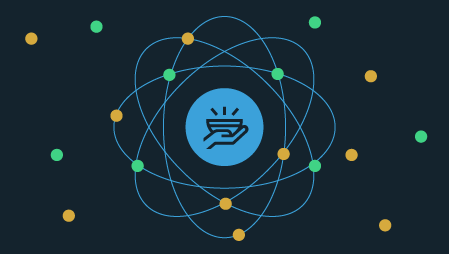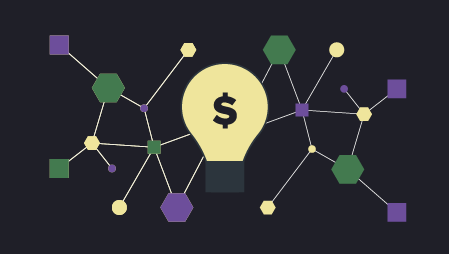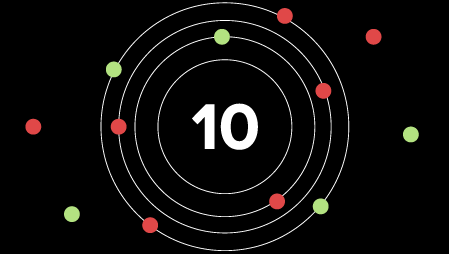Ready to learn Internet of Things? Browse courses like Internet of Things (IoT) Training developed by industry thought leaders and Experfy in Harvard Innovation Lab.
We examine some of the biggest trends we’re expecting in IoT, from security to edge computing and RPA
The state of the Internet of Things (IoT) market has not quite seen the explosion it did in 2017, rather it seems as though the hype has calmed as vendors prepare to bring a real impact in 2019.
As more and more vendors are striving to make viable IoT products and services which are easier to deploy, new developments like 5G and smart cities will bring with them added complexity to contend with.
Of course, it goes without saying that Gartner still holds onto its prediction that there will be over 20 billion IoT devices by 2020, but as we get closer to that date, consumers remain concerned about the performance and security of IoT deployments.
Here, we examine some of the major trends shaping IoT today, and what to expect in 2019.
Adoption
The IoT market is very likely to continue its upward trajectory in the market, especially with the height of focus from major vendors over the past year.
While 2018 demonstrated a year of increased IoT focus from vendors like Splunk and Google Cloud, we expect 2019 to bring more of the same.
Analyst firm Forrester predicts that B2B applications of IoT will take off immensely in the next year, whilst B2C will continue to find its footing. It predicts that 85 percent of firms will implement or plan to implement IoT solutions in 2019.
“As we enter 2019 the number of connected devices will only increase as more organisations begin to realise the benefits of IoT technologies. Consequently, next year will see the birth of a smarter IoT – whereby fully connected businesses will begin to pull data for more predictive use,” Martin Hodgson, head of UK and Ireland at Paessler told Computerworld UK.
Although the consumer market has been predicted to remain in the early stages, the smart home and connected devices markets should continue to grow to meet customer demand.
According to software firm Arm, 2019 is expected to see a growth in the availability of IoT smart home products as the expansion of consumer products will surpass the usual mainstream lighting, heating, cooling and other smart home devices areas, and instead deliver increased automation and efficiency to everyday tasks.
Security remains a concern
Despite this, IoT security will remain a huge concern. The past year saw a rise in IoT security appearing in headlines, all for the wrong reasons.
From self-driving car accidents to connected devices and security glitches, the need for vendors and manufacturers to put security and data privacy at the core next year is paramount.
As B2B takes hold of IoT, there is a large concern from consumers that vulnerabilities will impact trust in the connected world. In fact, 92 percent of IoT developers believe security will continue to be an issue in the future, according to Evans Data.
“Security must take precedence over innovation if confidence in IoT is to grow and severe security issues are to be avoided,” Bennett at Canonical said.
“If we get this right though, adoption will continue at an exponential rate, greater consolidation will drive developers to edge computing, while connected applications will unlock multi-purpose robots, leading to far greater capability and functionality.”
Although the concern has reduced since the IoT Code of Practice was released by the UK Government in October, this still stands as an initial guideline to IoT manufacturers and vendors.
“Next year we hope to see binding agreements to strengthen this security initiative. However, the question of who is responsible for this standardisation across the IoT is yet to be answered,” Bennett added.
Edge computing
Edge computing will prove particularly impactful for IoT devices as data volumes and the need for low-latency applications grow.
“We’re going towards edge computing, which is gaining momentum continuously as we realise that volumes are just too large to be pushed to the cloud,” Markus Noga, head of machine learning at SAP told us.
As long as organisations demand immediate action based on real-time data analysis, particularly in manufacturing and logistics, edge will continue to be a buzzword in the industry.
“In 2019, 5G deployments and the increasing proliferation of the IoT will be the key drivers behind the edge gaining significant awareness and traction,” Andrew Fray, managing director at Interxion said.
“Businesses will look to data centre providers to lead the charge when it comes to developing intelligent edge-focused systems. In terms of technological developments, a simplified, smarter version of the edge will emerge.”
Robotic Process Automation
It goes without saying that the past year displayed a massive uptick in adoption rate for Robotic Process Automation (RPA) software.
The continuous growth in adoption of the technology is phenomenal, and it doesn’t seem to be quieting down anytime soon. In fact, more and more vendors are starting to embrace RPA as part of their portfolios.
According to Chris Huff, CSO at RPA software vendor Kofax, 2019 will see large software companies acquiring RPA capabilities. This will follow in the footsteps of SAP’s acquisition of Contextor in 2018.
“I think RPA has a very important part to play as organisations are increasingly searching how to improve and modify their applications on a continuous basis, so everything that is repetitive and reoccurring in nature and is a sequence of simple steps, RPA is very well positioned to address,” said Noga at SAP.
“The evolution that we’re going to see is going to be towards more and more intelligence, going into the direction of a wider spread adoption in terms of the use of a number of bots in digital workspace is what I would are the two main trends,” he added.
According to Blue Prism, as vendors make attempts to scale more desktop automation tools all design limitations will become more apparent. This is also backed by the increasing competition in the market.
“For RPA to deliver value, longevity and resilience – at scale, automations should be carefully planned, modelled and designed. Short-cuts to building a process will increasingly introduce risks, such as ‘Grey IT’ – which is potentially very damaging for an organisation,” Pat Geary, chief evangelist at Blue Prism said.
“Therefore, 2019 will be the year where more rigour is applied to RPA vendor selection. Higher numbers of organisations will adopt a more strategic approach when selecting RPA products and greater proof will be demanded that a RPA product is really designed for the enterprise,” he added.
“Throughout 2019, we’ll see further evolutions with a shift from rule-based decision-making automation – to a more advanced intelligent automation. Importantly, these will increasingly deliver the thinking and analytical capability to make operations smarter and autonomous, to ensure that digital workers more closely replicate human decision making” Geary added.
What to expect
Overall, 2019 should be an interesting year for stakeholders in the IoT ecosystem. From the increase in connected devices, to a rise in intelligent automation – there will be several deployments of note to keep an eye on.
Security and privacy will become of greater importance as systems and devices become increasingly powerful too.
Gartner predicts that IoT will continue to deliver new opportunities, with a number of new and improved technologies over the next decade.
“As the IoT continues to expand, the need for a governance framework that ensures appropriate behaviour in the creation, storage, use and deletion of information related to IoT projects will become increasingly important,” Nick Jones, research vice president at Gartner said.



